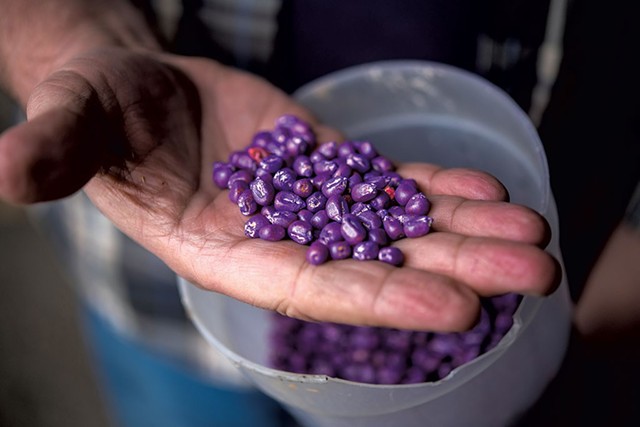
- File: CALEB KENNA
- Neonicotinoid-coated corn seeds
A key Senate committee has approved a bill meant to protect bees by encouraging farmers to limit the use of seeds coated in pesticides.
H.626, advanced by the Senate Agriculture Committee on Thursday, is a compromise intended to resolve a simmering feud between dairy farmers and bee keepers. Dairy farmers say seeds covered in neonicotinoid pesticides protect their corn crops, which they use to feed their cows, while bee keepers say the chemicals are killing honey bees and other pollinators.
H.626, advanced by the Senate Agriculture Committee on Thursday, is a compromise intended to resolve a simmering feud between dairy farmers and bee keepers. Dairy farmers say seeds covered in neonicotinoid pesticides protect their corn crops, which they use to feed their cows, while bee keepers say the chemicals are killing honey bees and other pollinators.
“None of us want to lose our pollinators, but we’ve got to keep feeding our animals as well,” said Sen. Bobby Starr (D-Essex/Orleans), the longtime chair of the committee.
An early version of the bill called for a ban on neonicotinoid pesticides, but dairy interests blocked it. The House ultimately agreed on a bill that gave the Agency of Agriculture, Food and Markets a couple of years to develop voluntary guidelines for using the seeds.
Following a new round of opposition from dairy interests, the Senate Agriculture Committee was on the verge asking the newly formed Agricultural Innovation Board — which considers pesticide use — to look into the issue.
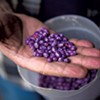 But Sen. Chris Pearson (P/D- Chittenden) said that ordering up yet another non-binding study would be “a slap in the face” to bee keepers who had testified that the high rate of bee deaths is destroying their livelihoods and threatening the state’s entire food system.
But Sen. Chris Pearson (P/D- Chittenden) said that ordering up yet another non-binding study would be “a slap in the face” to bee keepers who had testified that the high rate of bee deaths is destroying their livelihoods and threatening the state’s entire food system.
Pearson pushed a compromise that requires the agency to adopt voluntary best management practices for neonicotinoid seed use by March 24, 2024. The rules need to address when pest threats justify the use of such seeds, the toxicity levels of the pesticides infused in the seeds, and the availability of seeds without pesticide.
Starr noted that in many cases, farmers can’t get untreated seeds because treated seeds have become the industry standard.
“I don’t think they have much of a choice right now,” Starr said.
"That’s the point,” Pearson replied.
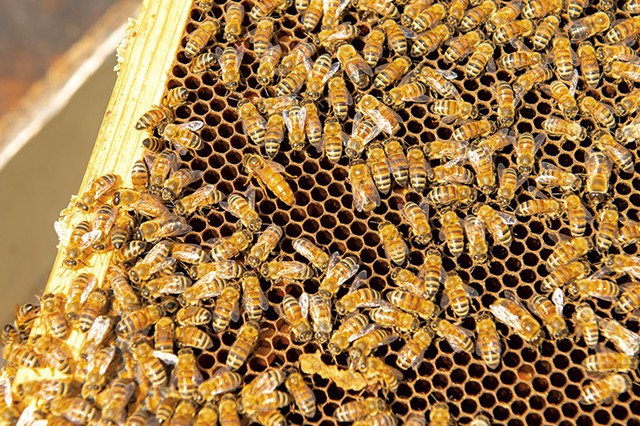 The goal of having a set of best management practices, even if voluntary, would be for farmers to “make a mindful decision whether or not they need to be planting these things” instead of using them by default because that’s what the industry sells, Pearson said.
The goal of having a set of best management practices, even if voluntary, would be for farmers to “make a mindful decision whether or not they need to be planting these things” instead of using them by default because that’s what the industry sells, Pearson said.
The bill also calls on the agency to work with farmers and seed companies to ensure they have enough untreated seeds available locally, which some testified can be a challenge.
Starr asked Pearson if he thought the bill would satisfy bee keepers "so they aren't going to beat up on us for not doing anything."
"My impression is they would be very grateful if we could advance this language," Pearson said.
The two Republican members of the committee, Sen. Cory Parent (R-Franklin) and Sen. Brian Collamore (R-Rutland), said they voted for the bill with reservations and only because the committee would have the chance to review the rules before they went into effect.
An early version of the bill called for a ban on neonicotinoid pesticides, but dairy interests blocked it. The House ultimately agreed on a bill that gave the Agency of Agriculture, Food and Markets a couple of years to develop voluntary guidelines for using the seeds.
Following a new round of opposition from dairy interests, the Senate Agriculture Committee was on the verge asking the newly formed Agricultural Innovation Board — which considers pesticide use — to look into the issue.
Related Land of Milk v. Honey: Dairy Farmers Lobby Against Banning Pesticides That Kill Bees

Land of Milk v. Honey: Dairy Farmers Lobby Against Banning Pesticides That Kill Bees
Environment
Pearson pushed a compromise that requires the agency to adopt voluntary best management practices for neonicotinoid seed use by March 24, 2024. The rules need to address when pest threats justify the use of such seeds, the toxicity levels of the pesticides infused in the seeds, and the availability of seeds without pesticide.
Starr noted that in many cases, farmers can’t get untreated seeds because treated seeds have become the industry standard.
“I don’t think they have much of a choice right now,” Starr said.
"That’s the point,” Pearson replied.

- File: Caleb Kenna
- Honeybees
The bill also calls on the agency to work with farmers and seed companies to ensure they have enough untreated seeds available locally, which some testified can be a challenge.
Starr asked Pearson if he thought the bill would satisfy bee keepers "so they aren't going to beat up on us for not doing anything."
"My impression is they would be very grateful if we could advance this language," Pearson said.
The two Republican members of the committee, Sen. Cory Parent (R-Franklin) and Sen. Brian Collamore (R-Rutland), said they voted for the bill with reservations and only because the committee would have the chance to review the rules before they went into effect.

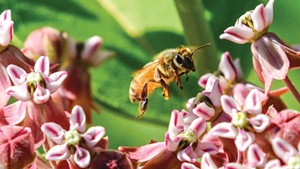
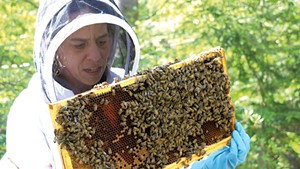
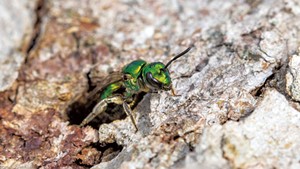
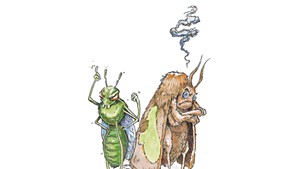









Comments
Comments are closed.
From 2014-2020, Seven Days allowed readers to comment on all stories posted on our website. While we've appreciated the suggestions and insights, right now Seven Days is prioritizing our core mission — producing high-quality, responsible local journalism — over moderating online debates between readers.
To criticize, correct or praise our reporting, please send us a letter to the editor or send us a tip. We’ll check it out and report the results.
Online comments may return when we have better tech tools for managing them. Thanks for reading.